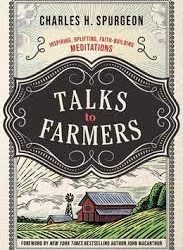 Reading the Bible is one of the most important practices of the Christian life. But just because you read your Bible doesn’t make you spiritual, and reading on its own provides no spiritual benefit. The Bible is not a talisman that possesses magical power just for the reading. When Hebrews 4:12 tells us that the Word of God is living and powerful, it is telling us that the Scriptures have supernatural power because they are the very words of God that confront us in judgment and grace. We must read the Bible with the eyes of faith, expecting to encounter a Holy God, and submitting ourselves to the authority of the words and the searching eye of the Holy Spirit.
Reading the Bible is one of the most important practices of the Christian life. But just because you read your Bible doesn’t make you spiritual, and reading on its own provides no spiritual benefit. The Bible is not a talisman that possesses magical power just for the reading. When Hebrews 4:12 tells us that the Word of God is living and powerful, it is telling us that the Scriptures have supernatural power because they are the very words of God that confront us in judgment and grace. We must read the Bible with the eyes of faith, expecting to encounter a Holy God, and submitting ourselves to the authority of the words and the searching eye of the Holy Spirit.
From the time I was a teenager, I read my Bible regularly. But for most of my high school and college years I read because I knew I should, not necessarily because I wanted to. This was not without benefit, for God used that greatly in my life to bend my heart toward him. In my second year of seminary, however, one particular morning in the Word became an epiphany for me. All the teaching and preaching in seminary on grace finally dawned in my heart, as I realized for the first time that I should read my Bible because I wanted to, not just because I should. That day the truth of grace sank deep into my heart. I wasn’t reading my Bible anymore because I thought I had to in order to remain right with God. I was reading because I understood that I had been made right with God through justification, not my own righteousness. This awoke an intense hunger for the Word I had never felt before. It awoke a desire for godliness and an intimate knowledge of God.
What was the difference? I was not reading the Bible anymore as an important book from which to gain comprehensive knowledge, or for preparation for the next Bible trivia quiz in school. I was reading the Bible to encounter the living God. This is an especially important point for anyone who teaches the Bible, whether in Sunday School, or as a college of seminary professor. The Bible was not given with the intent that we approach it as an object of neutral, objective research to be dissected and examined impartially.
Martin Luther, as scholarly as he was, knew the difference between an intense, experiential knowledge of the Word and a disinterested, academic knowledge:
Such a knowledge, even if it were possible, would only be the dead letter that kills. The Spirit makes alive! We must therefore “feel” the words of Scripture “in the heart.” Experience is necessary for the understanding of the Word. It is not merely to be repeated or known, but to be lived and felt (Timothy George, Theology of the Reformers, Nashville: B&H, 1988, 85).
Luther believed that Scripture is designed to confront the reader with “the existential demand and promise of Scripture which requires a present response” (p. 85). In other words, Scripture makes demands upon the believer while at the same time comforting with promises. No Christian should be able to read the Bible without being moved and transformed by it.
Notice the confrontational nature of his sermon on the phrase, “I will call upon the Lord” from Psalm 118:5:
Call is what you have to learn. You heard it. Don’t just sit there by yourself or off to one side and hang your head, and shake it and gnaw your knuckles and worry and look for a way out, nothing on your mind except how bad you feel, how you hurt, what a poor guy you are. Get up, you lazy scamp! Down on your knees! Up with your hands and eyes toward heaven! Use a psalm or the Lord’s prayer to cry out your distress to the Lord.
Does our Bible reading look like this? It can, if we expect to encounter a holy God every time we open the Word. If we stop approaching the Bible as a duty and an object to be studied for its own sake, we can begin to experience the transforming power of the Word. When we “tremble at the threshold of the biblical text,” as one theologian has written, our Bible reading will take on a whole new meaning. As my mentor, Frank Hamrick always says, when we stop studying the Word of God and start studying the God of the Word, we will be transformed.


0 Comments